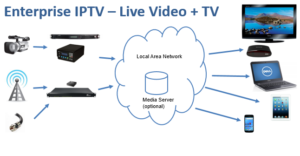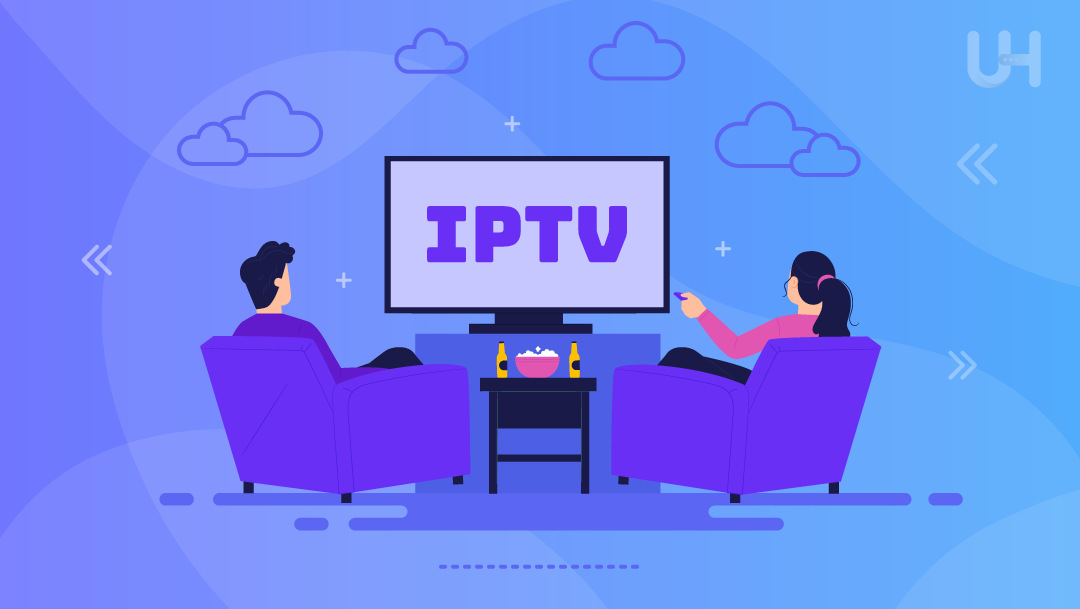IPTV Explained: Why It's Changing the Means We Enjoy TV
The appearance of Web Protocol Tv (IPTV) represents a crucial change in how target markets engage with material. As we explore the details of IPTV, it becomes noticeable that this evolution is not simply a fad; it positions substantial ramifications for the future of tv consumption and the landscape of electronic entertainment.
What Is IPTV?
IPTV, or Web Method Television, is an approach of delivering tv content online as opposed to through standard satellite or cable styles. This cutting-edge approach uses net protocol networks to transfer video clip information, enabling visitors to access a wide variety of shows directly through their net link. Unlike conventional broadcasting, which counts on radio waves or cable facilities, IPTV makes it possible for the streaming of content in a much more user-centric and flexible way.
Among the key advantages of IPTV is its capacity to provide on-demand access to a vast library of shows, flicks, and live broadcasts. Customers can enjoy tailored viewing experiences, consisting of the choice to stop briefly, rewind, or document web content. In addition, IPTV solutions often incorporate interactive features, such as video as needed, catch-up tv, and the capacity to accessibility numerous tools simultaneously.

Exactly How IPTV Functions

The process begins with web content aggregation, where different tv networks and programs are put together onto a central web server. From this server, the material is inscribed right into electronic formats appropriate for streaming. When an individual picks a program, the IPTV service recovers the proper information packages from the server and transmits them to the individual's gadget.
IPTV typically functions with set-top boxes or clever Televisions, which translate the inbound data and render the video for seeing. The innovation uses flexible bitrate streaming to maximize video clip quality based on the user's web speed, making sure a smooth checking out experience. IPTV commonly integrates interactive features such as gain access to, time out, and rewind to an electronic library, enhancing user involvement. On the whole, IPTV stands for an advanced integration of technology that changes standard television watching into a more individualized and dynamic experience.
Benefits of IPTV
As customers significantly seek versatility and customization in their home entertainment choices, IPTV offers a variety of advantages that accommodate these demands. Among one of the most considerable advantages is the ability to accessibility material on different devices, consisting of mobile phones, tablets, smart Televisions, and computers - Iptv. This multi-device compatibility allows customers to enjoy their favored programs and films anytime, anywhere, enhancing their watching experience
Furthermore, IPTV provides a comprehensive collection of on-demand material, enabling clients to select what to see, when to enjoy it, and how to see it. This contrasts with standard broadcasting methods, where customers are typically constricted by taken care of schedules. Furthermore, IPTV services often provide customization functions, such as customized referrals based on checking out practices, allowing users to find new material matched to their choices.
In addition, IPTV typically consists of advanced functions like cloud DVR capabilities, making it possible for users to record and store programs for later viewing. Boosted interactivity, such as the capacity to stop briefly, rewind, or fast-forward web content, further enhances the seeing experience. Iptv. Collectively, these benefits position IPTV as an engaging choice to conventional tv, meeting the developing expectations of today's audiences
Contrast With Standard TV
Conventional television and IPTV existing distinctive checking out experiences, each accommodating various target market preferences. Typical TV counts on terrestrial, wire, or satellite signals, using a dealt with schedule for broadcasting. Viewers are usually bound to particular time ports to see their preferred programs, which can be troublesome in today's busy environment.
On the other hand, IPTV delivers content by means of the web, allowing individuals to stream programs and flicks on-demand. This adaptability enables audiences to watch web content at their convenience, eliminating the restraints of an established routine. In addition, IPTV services typically supply accessibility to look at this website a more comprehensive variety of networks and web content, including worldwide shows and niche categories that typical cord bundles might not offer.
Moreover, the interactivity of IPTV improves customer involvement, enabling functions such as rewind, document, and pause capacities that typical TV does not have. Users can likewise access additional content, consisting of in-depth program overviews and customer scores, enhancing the total watching experience.
Inevitably, address while typical television continues to be a staple for several visitors, IPTV's versatility and riches of content make it a progressively prominent alternative, interesting those looking for even more control over their checking out routines.
Future of IPTV
The future of IPTV appears appealing, driven by improvements in innovation and changing consumer choices. As broadband facilities proceeds to enhance globally, IPTV solutions are poised to provide higher-quality video clip material with marginal buffering and boosted individual experiences. This progression is enhanced by the proliferation of smart tools, enabling audiences to gain access to IPTV material on smart devices, tablet computers, and smart TVs, therefore boosting ease and flexibility.
Furthermore, the integration of expert system and artificial intelligence right into IPTV platforms is expected to reinvent content shipment. Personalized recommendations based upon checking out habits will certainly boost user interaction, making it less complicated for clients to uncover appropriate material. Additionally, the unification of augmented reality (AR) and virtual fact (VR) technologies holds the potential to produce immersive viewing experiences that typical tv can not match.
The surge of subscription-based versions and ad-supported streaming services suggests a change in how customers want to spend for web content, additionally fueling IPTV's development. As more consumers look for adaptability and modification in their viewing routines, IPTV is most likely to come to be a leading force in the home entertainment landscape, reshaping exactly how web content is created, dispersed, and consumed in go the coming years.
Verdict
Finally, IPTV stands for a transformative innovation in television usage, providing audiences unprecedented adaptability and control over their seeing experiences. Its capacity for on-demand gain access to, personalized material, and interactive features identifies it from conventional broadcasting approaches. As innovation proceeds to progress, the potential for IPTV to additional impact media consumption patterns and improve the home entertainment landscape continues to be significant. This shift highlights the significance of adapting to emerging technologies in a significantly digital globe.
The appearance of Net Protocol Television (IPTV) indicates a pivotal shift in just how target markets engage with material.IPTV, or Net Protocol Television, is a technique of supplying tv content over the web instead than via traditional satellite or cable television styles.Making use of a network of internet protocols, IPTV provides television material via a collection of well-defined processes. Furthermore, IPTV services often use customization attributes, such as tailored recommendations based on seeing routines, permitting customers to uncover brand-new web content matched to their choices.
Additionally, IPTV services frequently offer accessibility to a wider variety of networks and material, consisting of worldwide programs and specific niche categories that standard wire plans might not use.
Comments on “IPTV for International Channels-- Get International Accessibility”